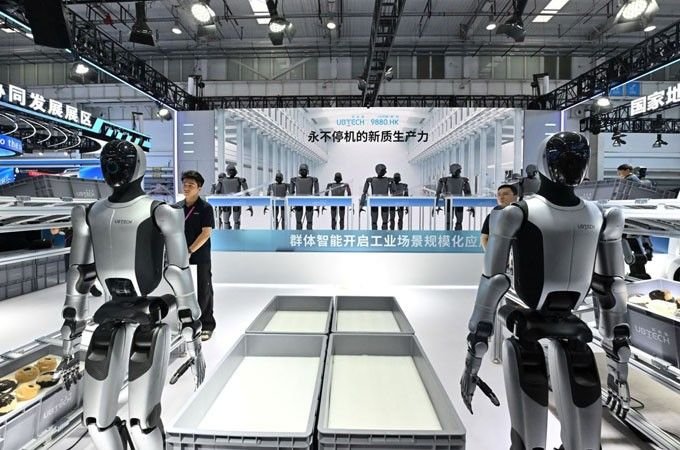Generative AI (GenAI) and AI are expected to significantly transform industries in Saudi Arabia, according to respondents from the Dell Technologies Innovation Catalyst Research. While there is broad optimism for AI and GenAI, the preparedness of organizations for the rapid pace of change varies greatly. Ninety-one percent of respondents in Saudi Arabia feel competitively well-positioned with a solid strategy. However, nearly half (48%) are uncertain about their industry’s future in the next three to five years, and 78% struggle to keep pace. Challenges cited include a lack of the right talent (27%), data privacy and cybersecurity concerns (28%), and insufficient budget (31%).
GenAI Moving from Ideation to Implementation
Respondents acknowledge GenAI’s transformative potential, particularly in improving IT security posture (62%), productivity (60%), and customer experience (59%). Despite this, 74% fear GenAI will introduce new security and privacy issues, and 84% agree that their data and IP are too valuable to be placed in a GenAI tool where a third party may have access. As organizations transition from ideation to implementation, with 58% already implementing GenAI, concerns about risk and responsibility arise. Eighty-seven percent agree that the organization, not the machine, user, or public, is responsible for any AI malfunction or undesired behavior.
Mohamed Talaat, Vice President for Saudi, Egypt, Libya, Levant, and Turkey at Dell Technologies, said: “GenAI is revolutionizing the technology landscape. In Saudi Arabia, its adoption across various sectors, from healthcare to finance, is driving innovation, raising efficiencies, and opening doors to new possibilities. With significant investments in AI research and development, Saudi Arabia is poised to become a leader in GenAI, fostering economic growth and enhancing the quality of life for its citizens.”
Organizations Rising to the Challenge of Today’s Threat Landscape
Cybersecurity remains a critical concern, with 91% of respondents impacted by a security attack in the past 12 months. The majority (94%) are pursuing a Zero Trust deployment strategy, and 86% have an Incident Response Plan to recover from cyberattacks or data leaks. The top three issues cited are malware, phishing, and data breaches. The role of employees in the threat landscape is significant, with 75% of respondents believing some employees bypass IT security guidelines for efficiency, and 71% identifying insider threats as a major concern. This underscores the need for employee training as the first line of defense.
The Right Technology Infrastructure for Success
The research highlights the importance of modern data infrastructure as technologies like GenAI advance and data volumes increase. Investing in scalable infrastructure is seen as the top area for business improvement to accelerate innovation. Most IT decision makers (75%) prefer an on-prem or hybrid model to address GenAI implementation challenges. Sharing data across the business is also crucial, with only 35% currently able to turn data into real-time insights to support innovation. However, 91% recognize data as a differentiator, emphasizing the need for a GenAI strategy that involves using and protecting data. Nearly half (42%) anticipate that the bulk of their data will come from the edge in the next five years.
Other Research Findings
Skills: Two-thirds (65%) report a shortage of talent needed for innovation. Key skills for the next five years include learning agility, AI fluency, and creative thinking.
Sustainability: Forty-two percent view “driving environmentally sustainable innovations” as crucial. Energy efficiency is prioritized, with 79% experimenting with as-a-Service solutions and 73% moving AI inferencing to the edge for greater energy efficiency.
Strategic IT Partnership: While 81% of business decision makers have reasons to exclude IT decision makers from strategic conversations, both departments rank a stronger relationship as a vital improvement area.















